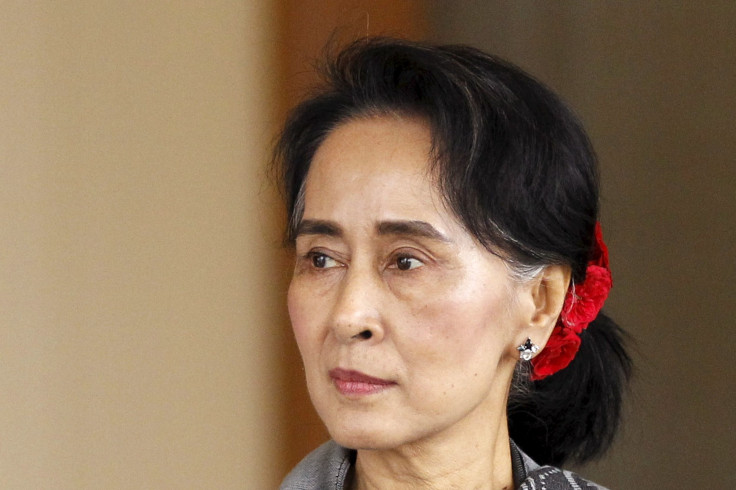Suu Kyi, Military Junta In ‘Cold War’ Ahead Of Political Transition In Myanmar

Myanmar democracy icon Aung San Suu Kyi and the country's ruling junta are in a "cold war" that could make Thursday's nominations for president — and the two weeks leading to the military's turnover — bumpy. That would be a change from the cooperative gestures both sides have made since Suu Kyi's National League for Democracy (NLD) swept parliamentary elections in November.
As of last week, media reports quoted NLD insiders as saying that Suu Kyi had agreed to stop pushing to remove a ban on her being elected president, settling for the position of foreign minister instead. By this week, reports said she already had a candidate for president, a low-profile associate who could be expected to follow her unofficial lead.
NLD and the military are set to submit their nominees for president to parliament on Thursday and the NLD-controlled parliament is expected to elect the party's nominee by Monday, Reuters said, leading up to a turnover on April 1.
But Reuters reports Suu Kyi has grown frustrated, and the two sides, previously reported to be quarreling over where to hold the turnover ceremony, are now bickering over parking slots at the ceremony and — in a throwback to how Clinton administration employees vandalized government property as they stepped down — stolen office equipment.
"The two sides are now in the state of cold war," said Win Oo, a former member of the army-backed Union Solidarity and Development Party (USDP).
In what may be more ominous, two weeks ago, military members of parliament stood up to protest NLD members' accusations about public works projects.
"We were scared when the military MPs suddenly stood up," Reuters quoted NLD Member of Parliament Tint Soe as saying. "My heart just dropped when I turned around to check the noise. The situation was really tense."
The military-approved constitution provides for 25 percent of parliament to be reserved for the military, which will continue to control the home ministry — that oversees the police, the capital and local government personnel — and the defense and border security ministries. In many ways, April 1 will not mark a transition but a power-sharing arrangement. The military may retain enough power to continue to commit and cover up atrocities like the killing of two teachers just last year, the Guardian reported Wednesday.
"It will be really difficult for her in the future because of the military — it is very clear they don't want to cooperate," Tint Soe said. "It's such a miserable situation."
© Copyright IBTimes 2024. All rights reserved.




















